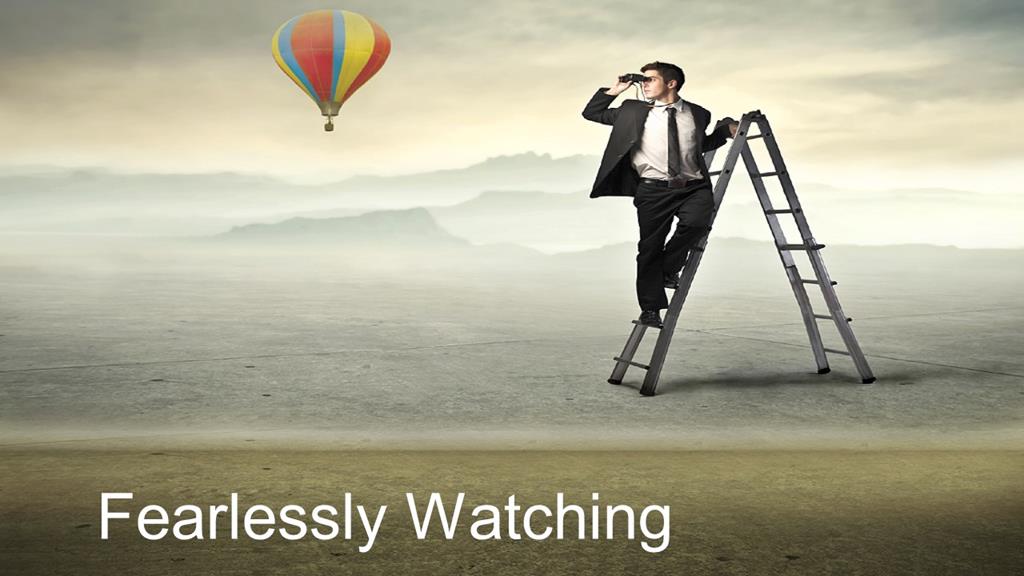 Jeff Garrison
Jeff Garrison
Skidaway Island Presbyterian Church
Luke 12:32-40
August 11, 2019
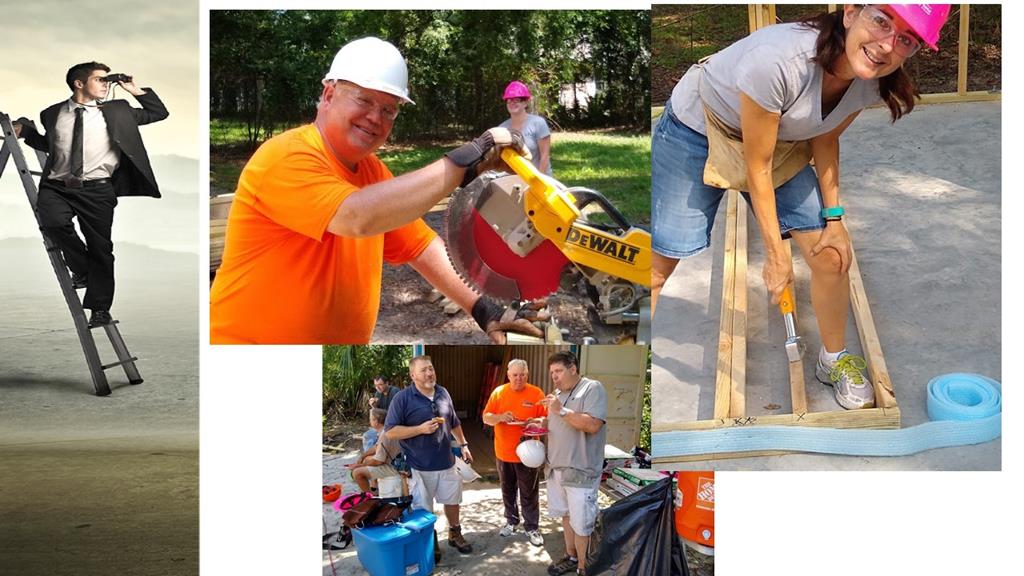
A group of 12 Presbyterians spent the morning working on a new Habitat for Humanity home in Garden City. Four of us from this church, along with others from Wilmington Island and White Bluff made up the group. It was interesting to see how each person took on tasks as we put together walls. Sarah Benton, a worker from Wilmington Island, captured the willingness of the group when she proclaimed at the start: “I’m a great ‘toter.’ Just tell me what you need, and I’ll fetch it.” That’s the attitude of a committed disciple. It’s the attitude of the Psalmist who proclaims that he’s okay just being a doorkeeper in the house of the Lord.[1]
From our group, John Evans operated the saw, cutting boards to lengths needed, while Mark Hornsby attached plates connecting the interior walls with the outer wall. And before those walls were set in place, Debbie Hornsby attached insulation foam on the bottom plate. I worked with the team that built and stood the walls. It was good to see so much done. When the heat started to get to us in early afternoon, we called it a day.
Today, we’re hearing back to back readings from Luke’s gospel where Jesus instructs the disciples not to worry about things in this world, but to build up treasure in the world to come. By working for the benefit of others, we help fulfill Jesus’ expectations for us as disciples. But this passage also has a surprise for us. While we’re not surprised to hear of our need for serving God, we are told here that God wants to serve us. In the kingdom, the roles will be reversed. Read Luke 12:32-40
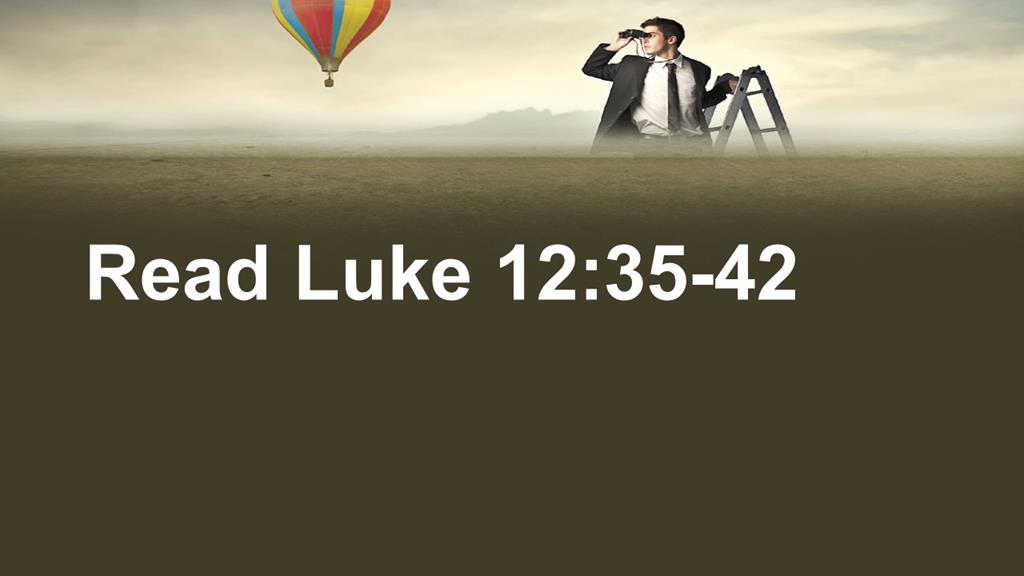
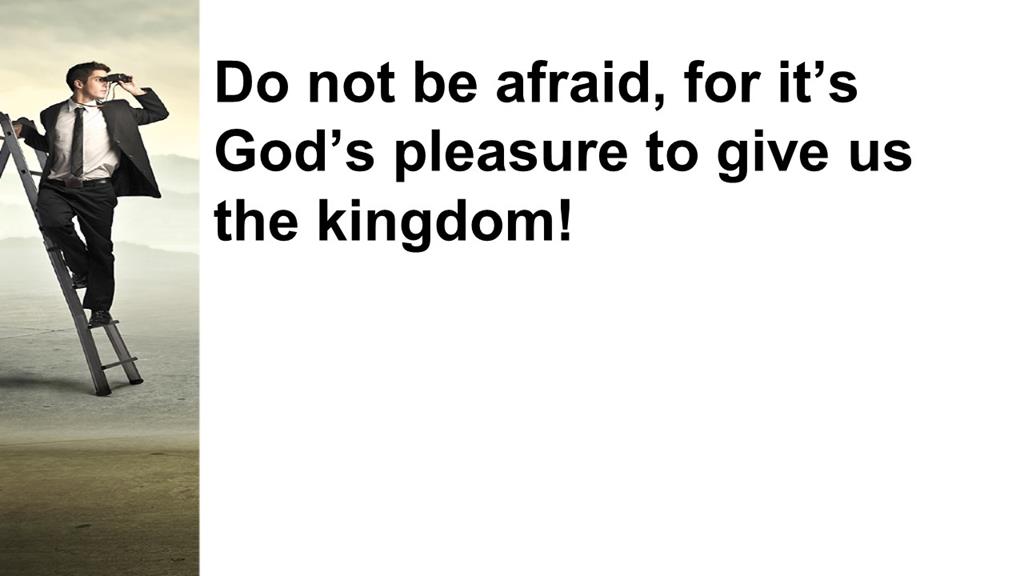
Did you catch what was said in the first verse I read? Let me paraphrase it. “Do not be afraid, for it is God’s pleasure to give us the kingdom!” Get that? There is no reason for worry. God wants to give us the kingdom.
 But how many of us truly live life without worry? I fall short of the mark. I worry about a lot of things, just like you. We worry about our loved ones, our jobs, our retirement portfolios, our safety, our health, the health of our animals (that’s a big one for most of us don’t have them insured). The list goes on and on. We worry about the economy and the violence that seems too prevalent in our society. We worry about international politics, climate change, and sea level rise. As people, we worry. But the phrase often heard throughout scripture, whenever God or a representative of God is present, is “do not be afraid.”[2] What would it take for us not to be afraid?
But how many of us truly live life without worry? I fall short of the mark. I worry about a lot of things, just like you. We worry about our loved ones, our jobs, our retirement portfolios, our safety, our health, the health of our animals (that’s a big one for most of us don’t have them insured). The list goes on and on. We worry about the economy and the violence that seems too prevalent in our society. We worry about international politics, climate change, and sea level rise. As people, we worry. But the phrase often heard throughout scripture, whenever God or a representative of God is present, is “do not be afraid.”[2] What would it take for us not to be afraid?
Jesus follows his command not to be afraid with a message of readiness. For some of us, and at a time this included me, Jesus’ return is a reason for worry. When I was in high school, the book, The Late Great Planet Earth, was a best seller, and it seemed frightening. “Give us a little more time, God. Give us a little more time to get our ducks in the row. Let us sin a little more before we make a commitment to you, hopefully right before your glory breaks through the clouds.” Most of us wouldn’t include those concluding remark our prayer, but it’s what we’d be thinking.
 As I said, our passage starts out with a wonderful promise from God about how God wants to give us good things, then it’s followed with two stories about the end of time. Our first story is based on a wedding banquet. The slaves await their master’s return so they can open the door for him and welcome him home. This is a positive parable, for those who aren’t dozing find themselves recipients of the master’s hospitality. He’s in a jolly mood after the wedding, so even though he returns in the middle of the night, the master pulls up his gown and ties it off around his waist, like a servant who needs to have freedom of movement to do his tasks. Then he has his slaves sit down and serves them dinner. This is odd behavior. The master, in the middle of the night, assuming the role of a slave in order to serve his servants. Who has ever heard of such a thing? This story, instead of encouraging us to be afraid of the Second Coming, should make us look forward to it. God wants to reward us by serving us. In scripture, the heavenly banquet is often used as a metaphor for the here-after. If we are doing God’s work when he returns (or when he calls us home), we’re promised good things.
As I said, our passage starts out with a wonderful promise from God about how God wants to give us good things, then it’s followed with two stories about the end of time. Our first story is based on a wedding banquet. The slaves await their master’s return so they can open the door for him and welcome him home. This is a positive parable, for those who aren’t dozing find themselves recipients of the master’s hospitality. He’s in a jolly mood after the wedding, so even though he returns in the middle of the night, the master pulls up his gown and ties it off around his waist, like a servant who needs to have freedom of movement to do his tasks. Then he has his slaves sit down and serves them dinner. This is odd behavior. The master, in the middle of the night, assuming the role of a slave in order to serve his servants. Who has ever heard of such a thing? This story, instead of encouraging us to be afraid of the Second Coming, should make us look forward to it. God wants to reward us by serving us. In scripture, the heavenly banquet is often used as a metaphor for the here-after. If we are doing God’s work when he returns (or when he calls us home), we’re promised good things.
 The second parable is about a thief coming in the night. This parable is a bit more of a threat, for we are reminded of the uncertainty of when things will happen. Jesus reminds us that if the owner of a house knew when a thief was coming, he or she would remain awake. We’d probably be sitting in a chair, with a good view of the door, with a shotgun across our lap, ready to properly greet the intruder. But since we don’t know when a thief will pay us a visit, we must take precautions. We lock the doors. We latch the windows. We safely store valuables and pay insurance premiums.
The second parable is about a thief coming in the night. This parable is a bit more of a threat, for we are reminded of the uncertainty of when things will happen. Jesus reminds us that if the owner of a house knew when a thief was coming, he or she would remain awake. We’d probably be sitting in a chair, with a good view of the door, with a shotgun across our lap, ready to properly greet the intruder. But since we don’t know when a thief will pay us a visit, we must take precautions. We lock the doors. We latch the windows. We safely store valuables and pay insurance premiums.
 These two parables complement each other. In one, we’re told to be awake, to be alert, for the Lord is coming. In other words, we’re told to be busy, doing God’s work. The second parable reminds us that we need to prepare ourselves for we don’t know when our Lord will return.
These two parables complement each other. In one, we’re told to be awake, to be alert, for the Lord is coming. In other words, we’re told to be busy, doing God’s work. The second parable reminds us that we need to prepare ourselves for we don’t know when our Lord will return.
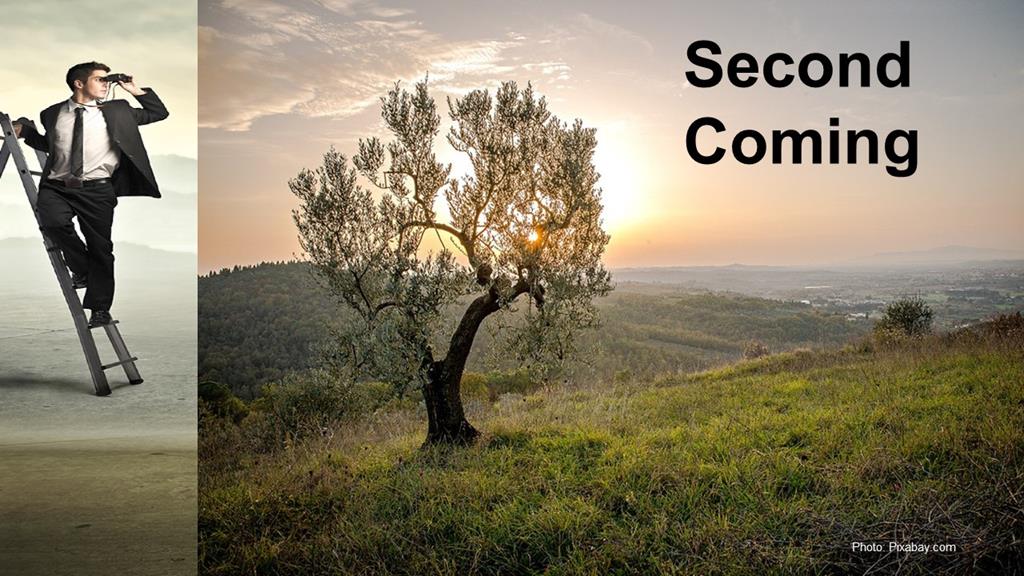 Okay, you’re thinking. The church has been expectantly waiting for two millennia and Christ hasn’t yet appeared in glory. But I believe he will. Preparing for his coming is paramount. Furthermore, it doesn’t matter if we’ll be the one to see Christ come in the clouds or if we meet him on our deathbed or when we accidently step in front of a dump truck, the time will come that it will be too late. Preparation for our earthly demise is necessary. We’re to make our peace with God so we’ll be justified before the throne on the Day of Judgment. Furthermore, we’re then to use our talents to further God’s glory in the world as we strive to be more Christ-like.
Okay, you’re thinking. The church has been expectantly waiting for two millennia and Christ hasn’t yet appeared in glory. But I believe he will. Preparing for his coming is paramount. Furthermore, it doesn’t matter if we’ll be the one to see Christ come in the clouds or if we meet him on our deathbed or when we accidently step in front of a dump truck, the time will come that it will be too late. Preparation for our earthly demise is necessary. We’re to make our peace with God so we’ll be justified before the throne on the Day of Judgment. Furthermore, we’re then to use our talents to further God’s glory in the world as we strive to be more Christ-like.
There are two images in this passage worth understanding: girded loins (the loose outer garments tucked in so that they don’t trip up the worker) and burning lamps.[3] Each image reinforces the idea that we must be ready and active. Being a Christian is more than passively accepting Jesus; it requires us to change our lives to be more like him.
 What should we take from this passage and apply to our lives today? Sure, we’re reminded, as the cliché goes, to get our ducks in order. We need to make peace with God while there is still time—before the master returns. But we also need to see there is no need to fear the second coming. The coming isn’t seen as a fearful event, but one of excited expectation, of God’s blessings!
What should we take from this passage and apply to our lives today? Sure, we’re reminded, as the cliché goes, to get our ducks in order. We need to make peace with God while there is still time—before the master returns. But we also need to see there is no need to fear the second coming. The coming isn’t seen as a fearful event, but one of excited expectation, of God’s blessings!
 The first parable reminds us that we need to be ready to use what God has given us, our talents, to further the master’s work in the world. We’ve all been given talents and skills that we can use to build up the body of Christ, just as we all had different talents yesterday on the job site. Are we ready? Do we put our skills and abilities to use? Or do we sit back with the hope someone else does our part? If we chose the latter, we’re no different than the servants who played around and were not ready for the master’s return. But if we’re doing our part, then we’re promised that when Christ calls us home, we’ll find a place set for us at the table.
The first parable reminds us that we need to be ready to use what God has given us, our talents, to further the master’s work in the world. We’ve all been given talents and skills that we can use to build up the body of Christ, just as we all had different talents yesterday on the job site. Are we ready? Do we put our skills and abilities to use? Or do we sit back with the hope someone else does our part? If we chose the latter, we’re no different than the servants who played around and were not ready for the master’s return. But if we’re doing our part, then we’re promised that when Christ calls us home, we’ll find a place set for us at the table.
 Even though these passages encourage us to be alert and active, we need to keep in mind as we do the work of a disciple, we are not buying ourselves into heaven nor are we striving to get a better room in the sweet bye-an-bye. We are called, as Christians, to respond to God’s grace, not to earn it. And we respond to God’s grace by creating a life that honors God and furthers the kingdom’s work in the world. Jesus, our Lord, died for us. He was the obedient servant. Through his sacrifice, our sins are forgiven, and we are freed to go out and work on the behalf of others that they too might come to experience his love. The Christian life is about forgiveness and service. It’s also not worrying about tomorrow, trusting in God’s providence and longing to experience the joy of being in God’s presence.
Even though these passages encourage us to be alert and active, we need to keep in mind as we do the work of a disciple, we are not buying ourselves into heaven nor are we striving to get a better room in the sweet bye-an-bye. We are called, as Christians, to respond to God’s grace, not to earn it. And we respond to God’s grace by creating a life that honors God and furthers the kingdom’s work in the world. Jesus, our Lord, died for us. He was the obedient servant. Through his sacrifice, our sins are forgiven, and we are freed to go out and work on the behalf of others that they too might come to experience his love. The Christian life is about forgiveness and service. It’s also not worrying about tomorrow, trusting in God’s providence and longing to experience the joy of being in God’s presence.
 When things look tough in the world, when we struggle throughout our lives, remember the promise that God wants to give us the kingdom. Amen.
When things look tough in the world, when we struggle throughout our lives, remember the promise that God wants to give us the kingdom. Amen.
©2019
[1] Psalm 84:10.
[2] This phrase is heard over 70 times in scripture: from God speaking to Abram in Genesis 15:1, to the angels speaking to the shepherds in Luke 2:10, to Jesus addressing John in Revelation 1:17.
[3] Fred Craddock, Luke: Interpretation, A Bible Commentary for Teaching and Preaching (Louisville: John Knox Press, 1990), 165.

I wonder how many of us truly live life without worry?
I think most of us do worry. We are concerned about our family, our work, perhaps where things seem to be heading. As Connie said, it seems to be part of our human nature … to be worried and concerned.
Our prayers can help, but there is lots more that needs to be done. Perhaps it helps if we each concentrate on our small part of the world, our family, our Community?
Always lots to think about.
All the best Jan
Worrying about things is something I am definitely guilty of. It seems to be a part of our human nature to wonder and fear what the future will bring, but I do try to keep in mind that God is in control and I shouldn’t be afraid.
Lots to think about here, some of which has been on my mind quite a bit lately.
This is a really interesting topic! I’m glad I visited your blog and found out about it
http://www.recklessdiary.ru